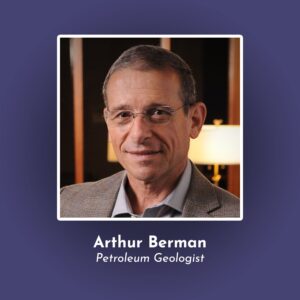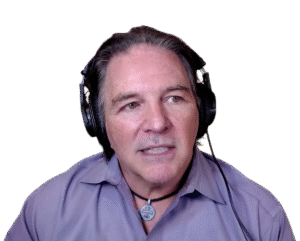
Show Summary
On this episode, Arthur Berman returns to unpack the complexity underpinning the oil trends of the last 75 years and what new data can tell us about availability in the coming years. After decades of declining oil production in the United States, the past decade of rising oil extraction has eased many worries about peak oil. But the past few years of continued growth have been obtained by using “a larger straw”, merely delaying the inevitability of the depletion of a finite resource. Art presents recent data on well productivity in US shale plays indicating we are much closer to ‘the slurping sound’. How does technology hide the declining availability of oil reserves, causing us to extract and use them faster without creating any new resources? Going beyond geology, how do geopolitics, finance, and social opinion affect oil availability? Where do we go when economically viable oil isn’t available anymore – and will we have the prudence to make the cultural shifts necessary before we have no other options? Have we now passed ‘peak oil’?
About Arthur Berman
Arthur E. Berman is a petroleum geologist with 36 years of oil and gas industry experience. He is an expert on U.S. shale plays and is currently consulting for several E&P companies and capital groups in the energy sector.
In French, we have a motto that says that a simple drawing is often better than a long explanation. Jean-Marc Jancovici Carbone 4 President
That’s very understandable because with left atmosphere thinking, one of the problems is that you see everything as a series of problems that must have solutions. Iain McGilchrist Neuroscientist and Philosopher
We can’t have hundreds and hundreds of real relationships that are healthy because that requires time and effort and full attention and awareness of being in real relationship and conversation with the other human. Nate Hagens Director of ISEOF
This is the crux of the whole problem. Individual parts of nature are more valuable than the biocomplexity of nature. Thomas Crowther Founder Restor
Show Notes & Links to Learn More
00:00 – Arthur Berman info, previous episodes, Art’s slides for this episode
03:30 – What is oil
03:55 – Unconventional oil
04:18 – Products made from a barrel of oil, importance of diesel
04:33 – Refining process
05:03 – Natural Gas Plant Liquids
07:58 – Peak Oil
08:52 – US is the largest oil producer, all of the growth since 2010 has been mostly due to US production increase
09:22 – Average well in the 1950s produced 150-200 thousand barrels/day, dropped to 20 thousand by 1970
10:21 – Average well production of unconventional wells (Slide 7)
12:23 – US production recent all time high
13:11 – EIA output projection for 2024
14:08 – Estimated Ultimate Recovery (EUR)
18:48 – Reduced investment in oil companies
20:52 – Breakeven costs
22:10 – Shale plays high rate of decline (Slide 8)
25:35 – Alaskan oil production
26:40 – Cantarell: Rise and Fall of Mexico’s Greatest Oil Field
27:05 – Current production is made of 70% tight oil (Slide 2)
27:49 – Commercially available oil reserves
39:02 – OPEC withholding oil to keep the price up
41:15 – Fossil fuel use in war
53:13 – FDR and Saudi Arabia deal
45:50 – Drainage radius of a well, effects of drilling too close together
53:16 – Rig count
57:55 – Increase in Rig Productivity
1:03:58 – Harold Hamm, Bloomberg Interview
1:04:29 – Scott Sheffield, Permian will peak in 5 years
1:08:25 – OPEC Vienna Meeting
1:08:37 – Tug of war between supply and demand on oil price
1:17:41 – United States’ unique resource ownership system
1:18:50 – Arctic drilling potential and barriers
1:26:23 – Helen Thompson + TGS Episode
1:27:17 – ½-⅔ of remaining oil reserve are within a few hundred miles of Israel






